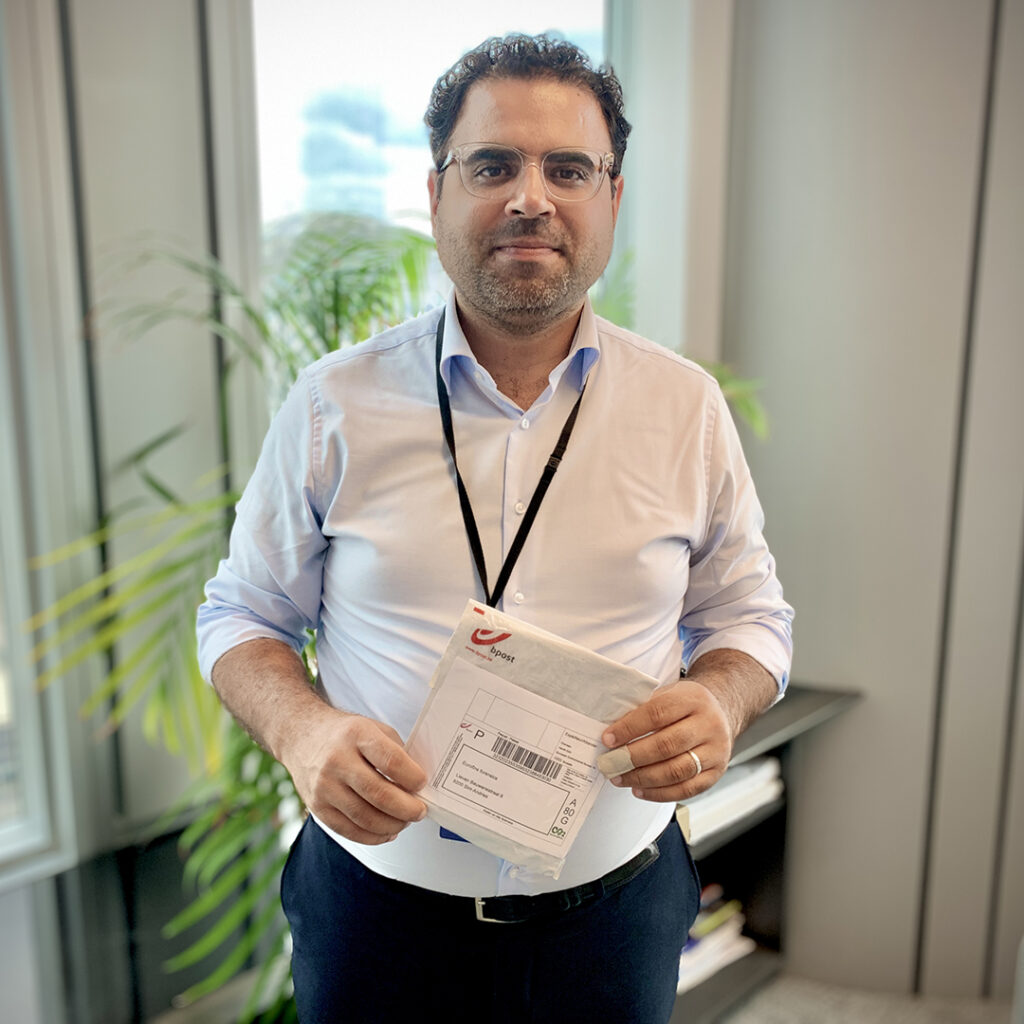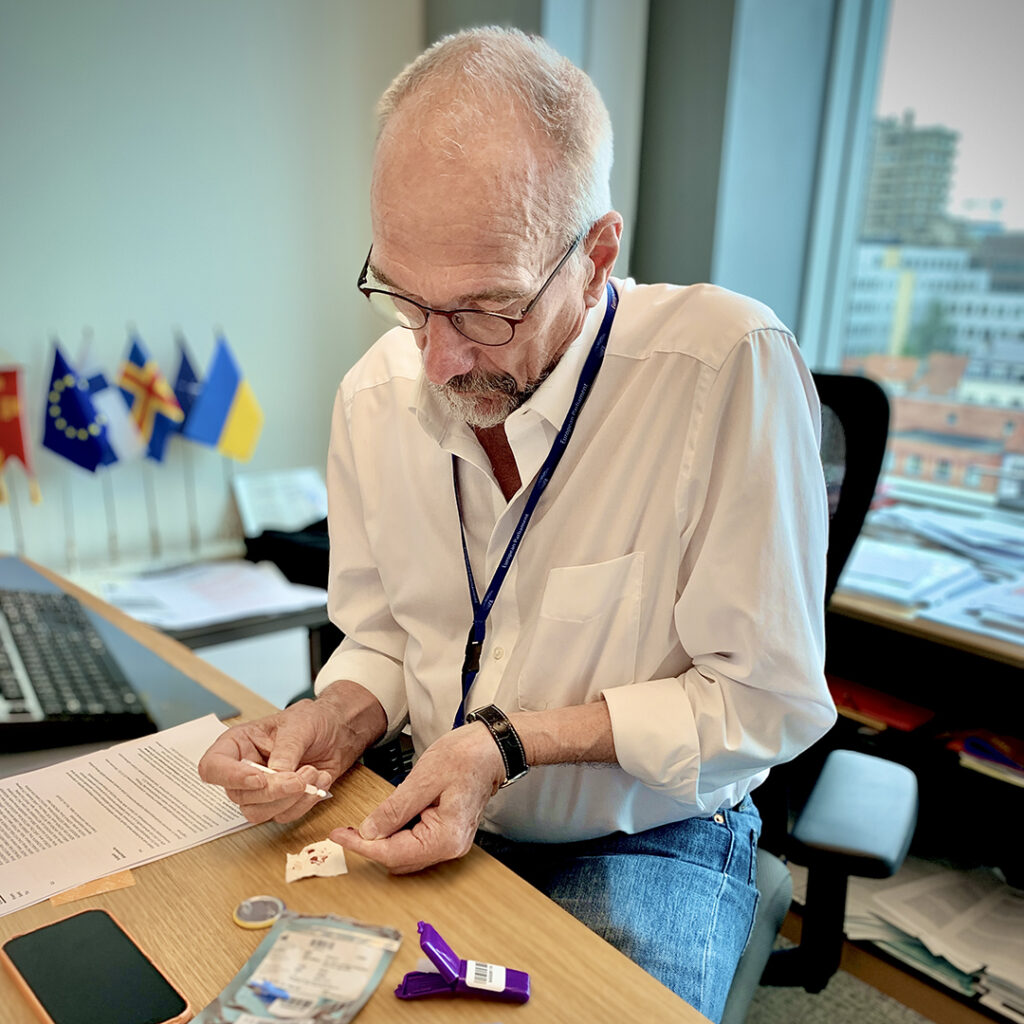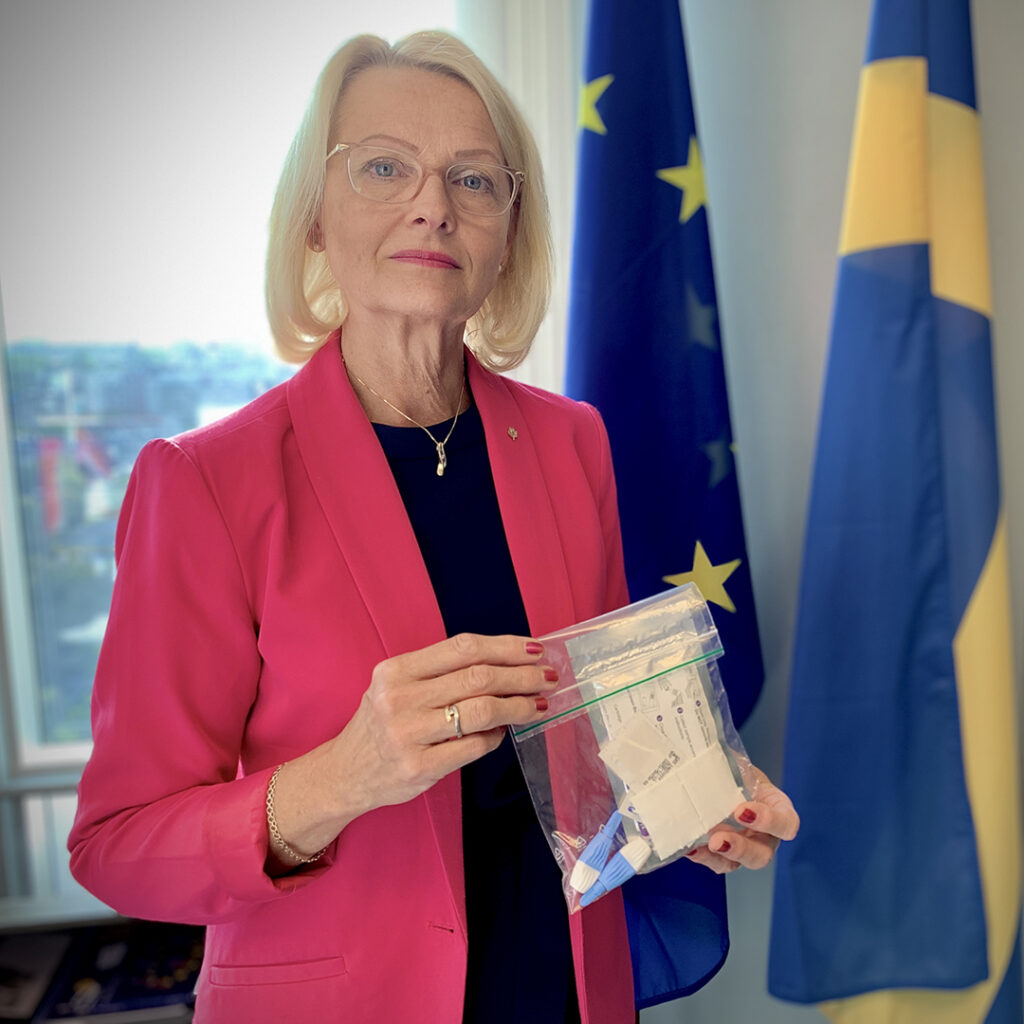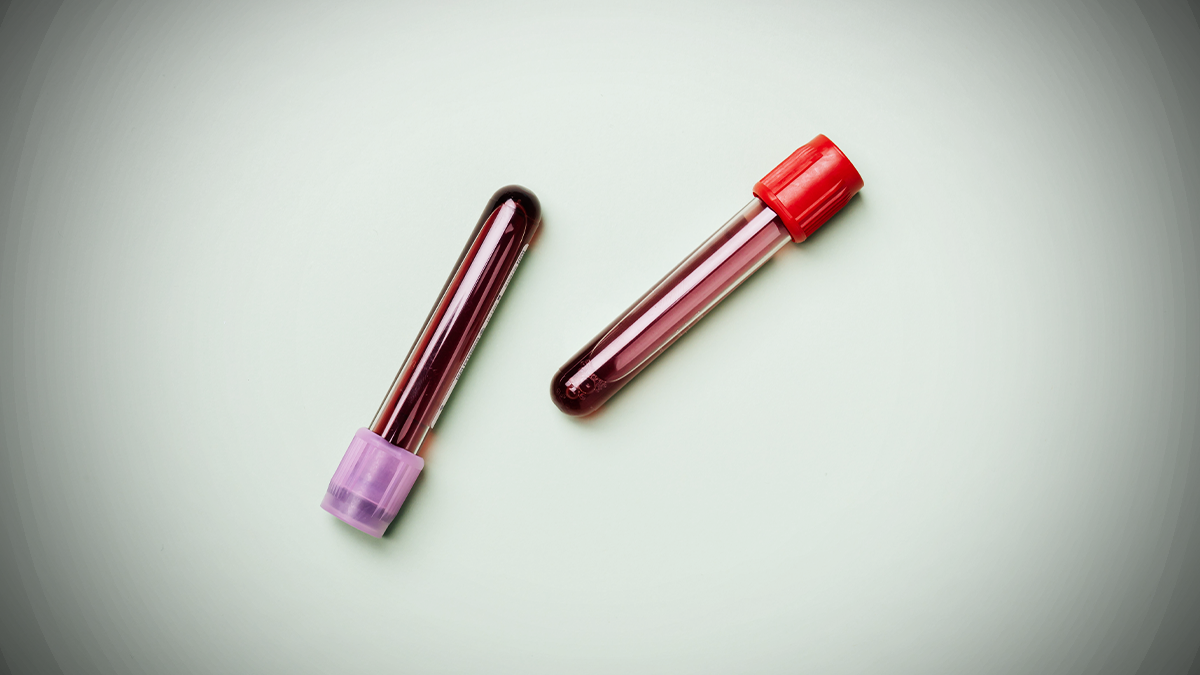99% of the human population has detectable levels of PFAS in the bloodstream, top-level EU politicians included. The question is just how much of these toxic forever chemicals they have running around in their veins.
When we tested our own blood last year, 9 out of 12 ChemSec employees had levels above the recommended safety level. In a couple of weeks, the results will be in and we’ll know what levels the EU parliamentarians have. Stay tuned to find out.
But until then, have a look at what some of the tested MEPs have to say about PFAS and why they wanted to test their blood for it:

Slovakia
Martin Hojsík
Renew Europe
Why do you want to test your blood for PFAS?
Partly because I’m curious to see what results I get. But also to lead by example and showcase the PFAS problem as a politician. I hope this will help people understand that this is not some far-away problem but that it’s about themselves and their own health. I’m doing this to signal the need for action.
When was the first time you heard about these chemicals?
Long time ago, back in the 90s’ you had this thing about not overheating your Teflon pans because then your canary would die. And canaries dying is obviously not a good thing. But it took a while for me to really understand the width of the problem.
How do you think we should address the PFAS problem?
Well, it’s two-fold. First, we need to act on sheer restriction whenever there is no essential use. So, we need to restrict those chemicals. Then we need to push for a system where we motivate businesses and researchers to come up with alternatives and give them room on the market.

Germany
Jutta Paulus
The Greens / European Free Alliance
Why do you want to test your blood for PFAS?
Well, I’ve been working on the issue of PFAS for two or three years and following all the discussions around the restriction proposal which was brought forward by five European countries. So, I’m very interested in the issue and grateful to have the opportunity to have my blood tested.
When was the first time you heard about these chemicals?
I think this was about 12-13 years back when I wasn’t a politician yet and working in a chemical laboratory that was performing studies for REACH. So, I was quite familiar with the different substances that were on the plate, so to speak.
How do you think we should address the PFAS problem?
I think the restriction proposal which was brought forward by those five European countries is a sensible way to address the PFAS problem and to say: ‘Let’s tackle them as a group, let’s not look at the individual substances. Because if we continue to ban them with the speed of the last 20 years, then we will be done by the year 2380 or something.

Netherlands
Mohammed Chahim
Progressive Alliance of Socialists and Democrats
Why do you want to test your blood for PFAS?
First of all, I’m quite curious about what the result will be but also to show people that these environmental issues that we see are usually not that far off. It’s not only of concern for people living close to installations that process and produce these types of chemicals. Even living further away, these forever chemicals still affect us.
When was the first time you heard about these chemicals?
Quite some time ago actually. We have a company in my city that processes GenX and, when I worked as a councillor, we had some leaks in the water near the canal. We tried to identify who the culprit was and it turned out to be that company.
How do you think we should address the PFAS problem?
Like with many of these chemicals, the precautionary principle is very important. I think it’s important to treat PFAS chemicals as a family and not as individual substances. And I really believe that we need to open up the REACH legislation and make sure that when it comes to these chemicals they are better legislated.

Finland
Nils Torvalds
Renew Europe
Why do you want to test your blood for PFAS?
In the European Parliament, we currently have a legislative proposal related to wastewater, and in that context, we’ve discussed PFAS. So, this is particularly interesting for me since I will continue this discussion. And due to the fact that having PFAS in one’s system is very likely, this test can also serve as a compelling example to demonstrate that we all carry it within us.
When was the first time you heard about these chemicals?
I believe we discussed this in the ENVI Committee a few years ago, but back then it may have gone over my head. However, with this legislative proposal on wastewater there is no pardon — PFAS is one of the major challenges we are facing.
How do you think we should address the PFAS problem?
If we don’t address PFAS in wastewater, the costs will ultimately be added to the healthcare bills. I don’t think it’s just a matter of implementing legislation, however. It’s also about having new technology that can support the legislation.

Sweden
Heléne Fritzon
Progressive Alliance of Socialists and Democrats
Why do you want to test your blood for PFAS?
Partly because I’m working hard to achieve a ban on PFAS at the European level. But also since I’m from southern Sweden and closely follow the debate surrounding the population in Kallinge, who are severely affected by PFAS. So, it’s an issue that is also closely related to my political work.
When was the first time you heard about these chemicals?
I remember a presentation from the fire department when I worked in the municipal council that highlighted the problem of having an entire training ground where firefighters constantly practised with foam extinguishers right in the city centre. That presentation, I remember, primarily focused on the risks of PFAS in water.
How do you think we should address the PFAS problem?
I firmly believe that PFAS should be banned and that this must occur at the EU level. What we know today, that we were unaware of before, is that the chemicals mainly spread through water. And since water knows no borders, we need an EU regulation. So, that’s what I want to achieve, a PFAS ban in the EU.





